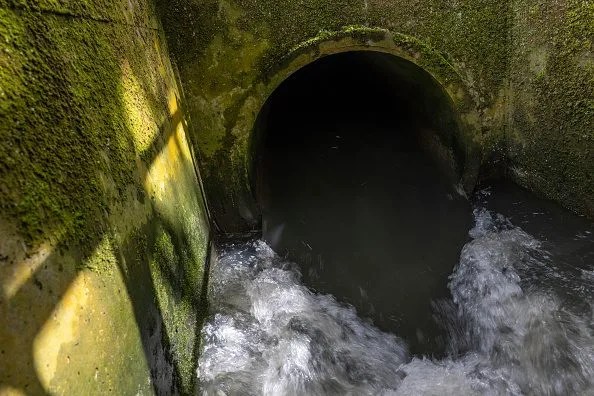Explainer: Who will pay £10bn to fix the sewage scandal?

Imagine some multi-billion company was throwing untreated sewage into your local river, then got caught, said they were sorry, and asked you to pay to clean it up. Welcome to Britain in 2023.
Water UK, the industry body for water companies, today apologised for all the raw sewage spillages, and committed £10bn to be spent by 2030 to fix the mess. But the companies will borrow the money, which will be recouped through customer bills.
One analyst quoted in The Times expects bills to go up £30 a year to finance the project. Bills are already high, at an average of £448 in England. People are furious about the prospect of having to pay to fix the mistakes of a sector that has embarrassed – and polluted – the entire country. The scandal is nothing new, but last year there were still more than 800 spills a day on average.
While they were ignoring the holes in their infrastructure, or deliberately letting spills go unchecked in rivers and lakes, the water companies were also making a lot of money, profiteering from the lack of accountability.
In the previous financial year, Thames Water made £2.2bn, Severn Trent Water and United Utilities made £1.9bn each, and Anglian Water made £1.3bn. Claiming these companies don’t have the kind of money needed to fix the problem is simply implausible.
Last week the chief executives of Thames Water, South West Water and Yorkshire Water declined their bonuses as a gesture of goodwill. As laudable as that is, it is too little too late.
The UK is stuck with a Victorian sewage system with similar problems to the Victorian housing infrastructure: it’s old, it doesn’t work and has holes everywhere. The water infrastructure is equipped with an emergency mechanism, whereby in case of extreme weather events, sewage gets discharged into the sea or rivers through pipes known as “storm overflows”. That is to avoid spillages to reach cities and homes. But the water companies have been using these same pipes over and over to discharge sewage during normal weather conditions.
Campaigners have accused the government of not doing enough, mainly leaving the issue to the private industry and the regulators. Labour has said it would automatically fine any company that’s found to dump sewage, and would make monitoring mandatory.
This £10bn will be used to build new storm tanks, and comes on top of the £3.1bn pledged by the water companies between 2020 and 2025. It’s a very welcome sum; but the prospect that it will come from the customers’ pockets is simply unfair.